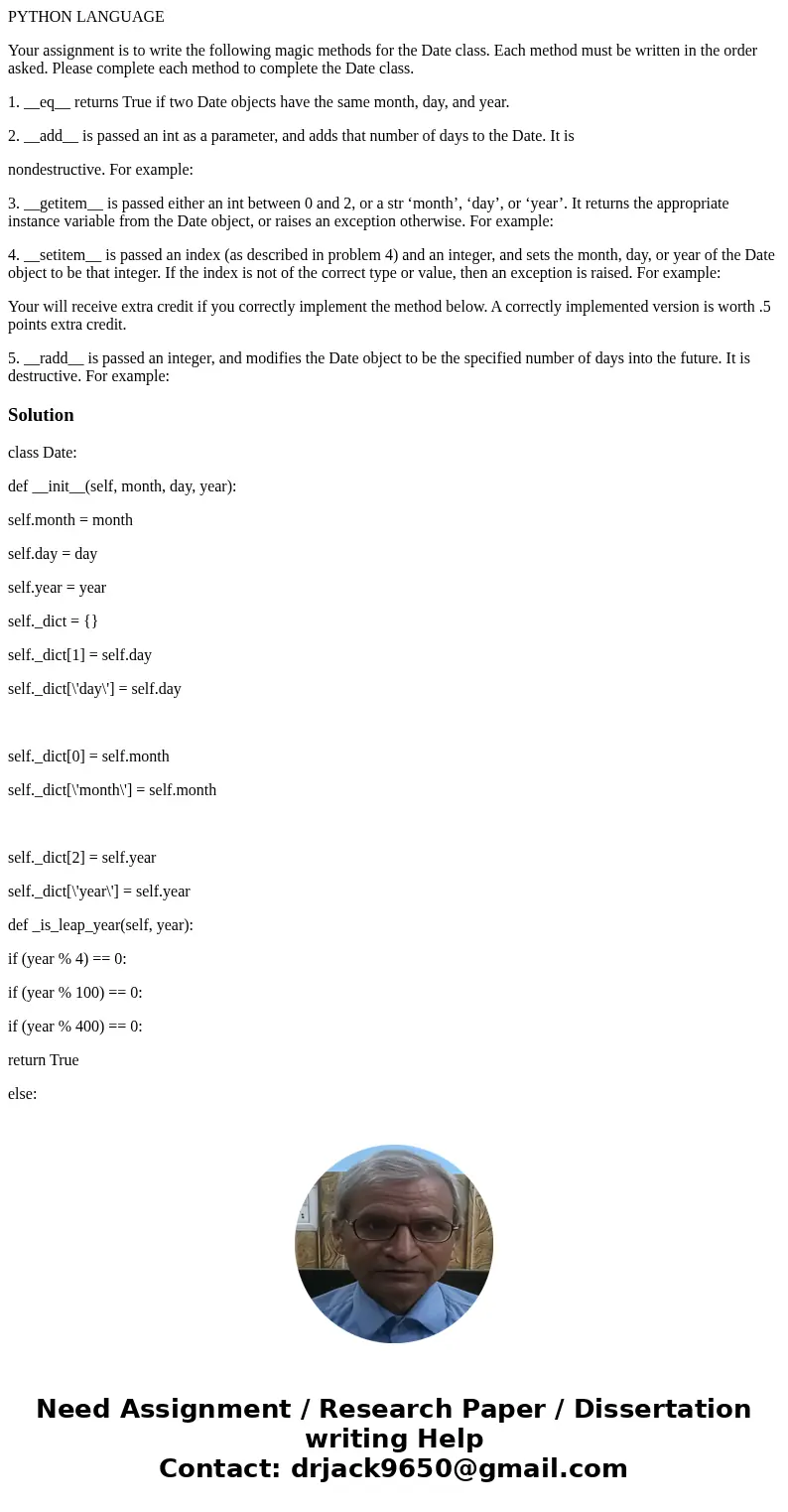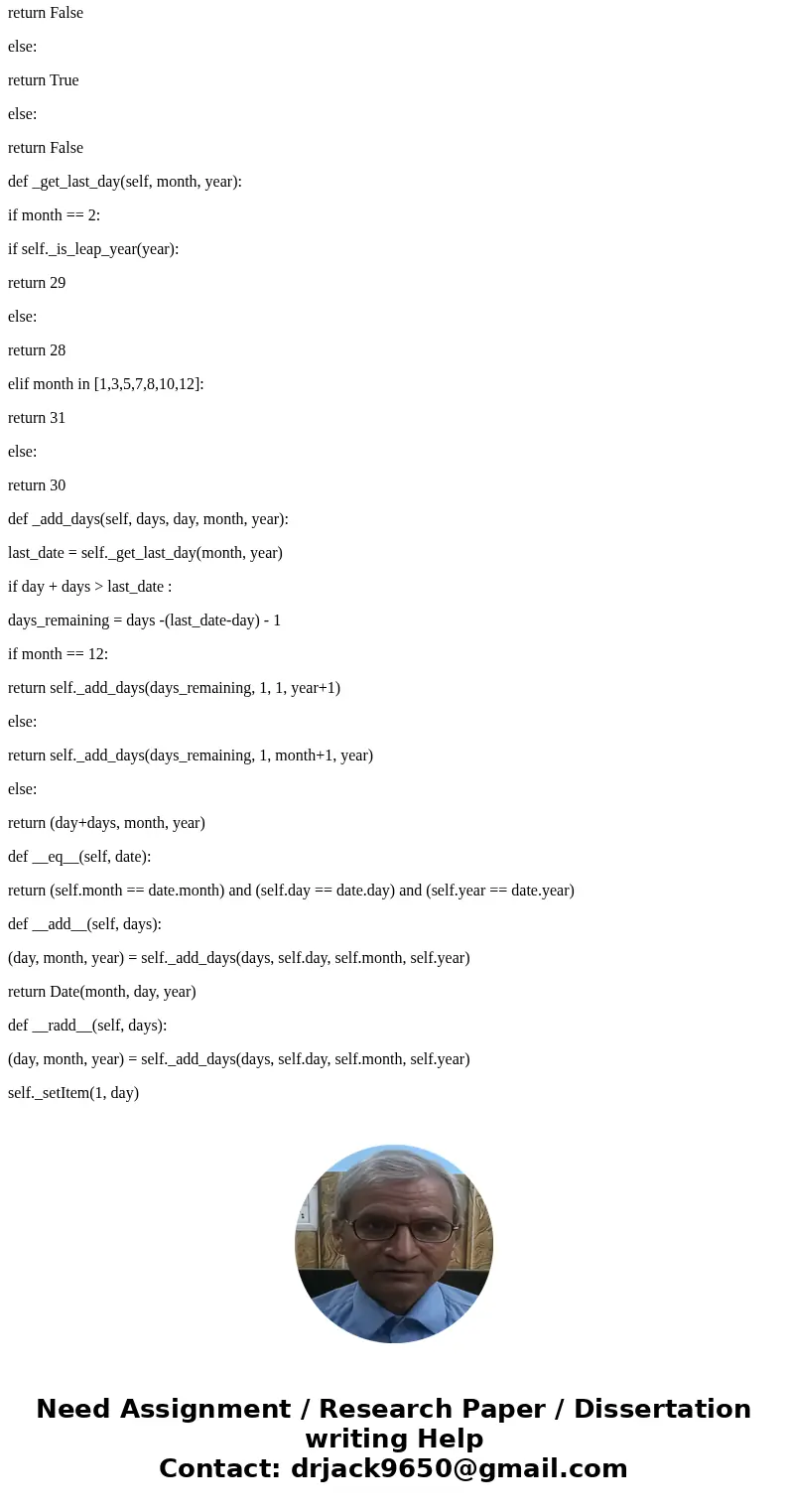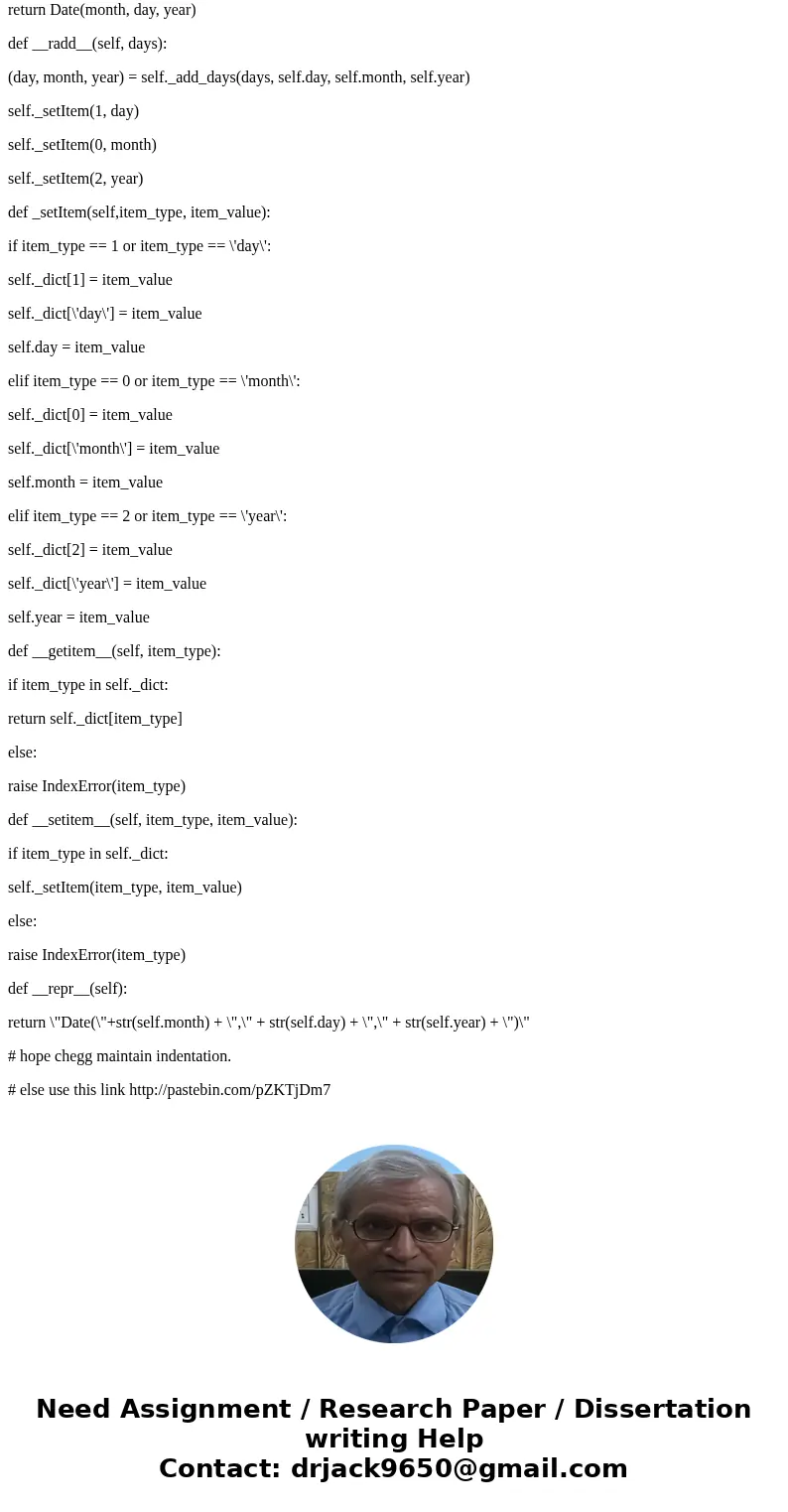PYTHON LANGUAGE Your assignment is to write the following ma
PYTHON LANGUAGE
Your assignment is to write the following magic methods for the Date class. Each method must be written in the order asked. Please complete each method to complete the Date class.
1. __eq__ returns True if two Date objects have the same month, day, and year.
2. __add__ is passed an int as a parameter, and adds that number of days to the Date. It is
nondestructive. For example:
3. __getitem__ is passed either an int between 0 and 2, or a str ‘month’, ‘day’, or ‘year’. It returns the appropriate instance variable from the Date object, or raises an exception otherwise. For example:
4. __setitem__ is passed an index (as described in problem 4) and an integer, and sets the month, day, or year of the Date object to be that integer. If the index is not of the correct type or value, then an exception is raised. For example:
Your will receive extra credit if you correctly implement the method below. A correctly implemented version is worth .5 points extra credit.
5. __radd__ is passed an integer, and modifies the Date object to be the specified number of days into the future. It is destructive. For example:
Solution
class Date:
def __init__(self, month, day, year):
self.month = month
self.day = day
self.year = year
self._dict = {}
self._dict[1] = self.day
self._dict[\'day\'] = self.day
self._dict[0] = self.month
self._dict[\'month\'] = self.month
self._dict[2] = self.year
self._dict[\'year\'] = self.year
def _is_leap_year(self, year):
if (year % 4) == 0:
if (year % 100) == 0:
if (year % 400) == 0:
return True
else:
return False
else:
return True
else:
return False
def _get_last_day(self, month, year):
if month == 2:
if self._is_leap_year(year):
return 29
else:
return 28
elif month in [1,3,5,7,8,10,12]:
return 31
else:
return 30
def _add_days(self, days, day, month, year):
last_date = self._get_last_day(month, year)
if day + days > last_date :
days_remaining = days -(last_date-day) - 1
if month == 12:
return self._add_days(days_remaining, 1, 1, year+1)
else:
return self._add_days(days_remaining, 1, month+1, year)
else:
return (day+days, month, year)
def __eq__(self, date):
return (self.month == date.month) and (self.day == date.day) and (self.year == date.year)
def __add__(self, days):
(day, month, year) = self._add_days(days, self.day, self.month, self.year)
return Date(month, day, year)
def __radd__(self, days):
(day, month, year) = self._add_days(days, self.day, self.month, self.year)
self._setItem(1, day)
self._setItem(0, month)
self._setItem(2, year)
def _setItem(self,item_type, item_value):
if item_type == 1 or item_type == \'day\':
self._dict[1] = item_value
self._dict[\'day\'] = item_value
self.day = item_value
elif item_type == 0 or item_type == \'month\':
self._dict[0] = item_value
self._dict[\'month\'] = item_value
self.month = item_value
elif item_type == 2 or item_type == \'year\':
self._dict[2] = item_value
self._dict[\'year\'] = item_value
self.year = item_value
def __getitem__(self, item_type):
if item_type in self._dict:
return self._dict[item_type]
else:
raise IndexError(item_type)
def __setitem__(self, item_type, item_value):
if item_type in self._dict:
self._setItem(item_type, item_value)
else:
raise IndexError(item_type)
def __repr__(self):
return \"Date(\"+str(self.month) + \",\" + str(self.day) + \",\" + str(self.year) + \")\"
# hope chegg maintain indentation.
# else use this link http://pastebin.com/pZKTjDm7



 Homework Sourse
Homework Sourse